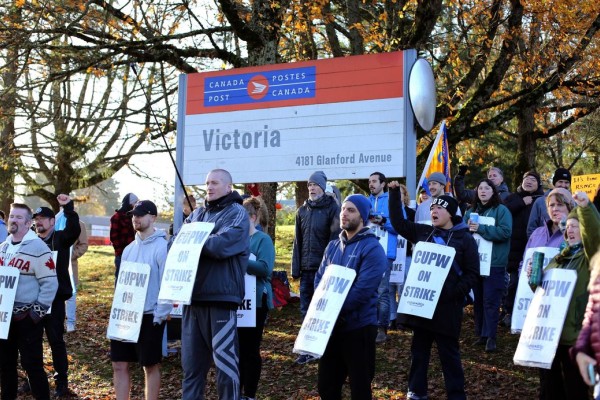Labour a key partner in a Canadian Green New Deal
The transformative task of greening our economy for a new generation will ultimately depend on workers

“Migrants” by Mary Tolstova
In a month where unprecedented floods have ravaged many Canadian communities, the immediate perils of climate change have never been more evident. At the same time, the news is full of reports underlining the economic anxiety felt by many Canadians. One recent poll showed that nearly half of us fear that we’re only $200 away from personal bankruptcy.
South of the border, some U.S. progressives have started floating the idea of a “Green New Deal” — a modern version of President Roosevelt’s historic effort to restore prosperity to America coming out of the Great Depression. Though the idea is still nascent, the core of the Green New Deal concept is to arrest the creeping catastrophe of climate change by decarbonizing the American economy through massive investments in green jobs and infrastructure.
For now, the Green New Deal discussion is in its early stages: an ambition designed to reconcile the often false dichotomy created between economic and environmental priorities. Much work remains to be done, both when it comes to policy specifics and building broad coalitions of political support. The same applies here in Canada.
While Canadians should seek to harness the momentum created by our progressively minded American counterparts, we must generate our own, “Made in Canada” approach. Canada, after all, never had a New Deal. More importantly, our economy and history are distinct and the challenges we face — both in fighting climate change and winning a just transition for workers — are unique.
Designing our own solutions also gives us the opportunity to learn from any missteps south of the border. The lukewarm response from much of the American labour movement to the Green New Deal resolution currently before the U.S. House of Representatives illustrates why co-operation between unions and environmental activists is essential in the work ahead. Labour will be absolutely critical to the success of any effort in Canada.
Our urgently needed transition to a low carbon future won’t be achieved without the support of Canadian workers. That support can and should be won through a plan that guarantees them a just, fair and prosperous future. We can build a formidable coalition to fight climate change by bringing together unlikely allies to reconcile environmental necessities with economic priorities. A partnership between unions and environmentalists may also allow us to break the gridlock of Canada’s current climate discussion, which has been focused almost exclusively in two areas: pipelines and carbon taxes.
Though a juicy target from the point of view of many in the environmental movement, the overriding emphasis on pipelines often serves to alienate workers who see job losses on the horizon. We must remember that jobs connected to energy intensive industries and fossil fuel extraction are good jobs that provide a decent standard of living to Canadian workers. Moreover, in an age of where affordability concerns are rampant, we shouldn’t be surprised to find that carbon taxes have become a popular target for those resisting climate action.
Clearly, an alternative route is needed. And, however we ultimately decide to label it, a Canadian Green New Deal could offer us an exit from this cul-de-sac by putting the concerns of labour and environmental groups to work in a mutually reinforcing way.
The transformative task of greening our economy for a new generation will ultimately depend on the skills and expertise of workers throughout Canada. From pipefitters and electrical engineers; from steelworkers to construction professionals, care workers, teachers, machinists and others, a just transition will require a monumental effort across the country. Millions of good jobs can be created in the process.
Well over a decade ago, we were involved in the creation of Blue Green Canada — an initiative that emerged to address historic mistrust between trade unions and environmentalists. In the years since, friends and allies on both sides of the equation have worked hard to strengthen relations. Once a novel idea, co-operation between union and environmental activists has increasingly entered the mainstream. In the emerging and urgently needed climate discussion, those bonds can become frayed once again or they can be strengthened for a new century.
To win climate progress in Canada and safeguard the future of our planet, let’s make sure it’s the latter.
Rick Smith is executive director of the Broadbent Institute. Ken Neumann is the United Steelworkers national director for Canada.
This article originally appeared in the Toronto Star.










